UN WOMEN ORGANIZATIONAL CONTEXT
The United Nations Entity for Gender Equality and the Empowerment of Women (UN Women), grounded in the vision of equality enshrined in the Charter of the United Nations, works for the elimination of discrimination against women and girls; the empowerment of women; and the achievement of equality between women and men as partners and beneficiaries of development, human rights, humanitarian action and peace and security. UN Women provides support to Member States’ efforts and priorities in meeting their gender equality goals and for building effective partnerships with civil society and other relevant actors.
UN Women operationalizes this through Flagship Programming Initiatives (FPIs) developed to achieve transformative results for gender equality and women empowerment. One such FPI is the Women Peace and Security Program, which the Uganda Country Office has been implementing over the last three years (2019 – 2021) with support from the Government of Norway. The Uganda WPS program is aligned to and contributes to the Sustainable Development Goals (SDG) -specifically Goal 5 on Gender Equality and Goal 16, which seeks to promote peaceful and inclusive societies for sustainable peace and development by providing access to justice to all and to build effective, accountable, and inclusive institutions at the national and county level. UNSCR 1325 and the Goal 5 and Goal 16 clarified the critical link among gender equality, security, development and human rights.
PROGRAM OVERVIEW / RESULTS
The WPS program was developed against a backdrop of conflict and post conflict situations in Uganda including the post conflict situation in northern uganda noting that even though there is no active war, the lack of transitional justice including reconciliation and reparations, has remained a serious challenge, with little accountability for atrocities committed during the 20- year civil war. More so, Uganda has continued to experience tension before, during and after elections characterised by general unrest caused by hostility towards and from security forces, brutal arrests and violence; threats of terrorism and a rise in violent extremism notably in the Rwenzori, Eastern and Central regions of Uganda; growing insecurity of women and girls, arising from the kidnap, rape and murder of women in the municipalities of Entebbe and Nansana; land and Natural Resources Conflict.
Given the threats to peace articulated above, Uganda has since 2008 developed and implemented 3 National Action Plans (NAP) on UN SCR 1325 on Women, Peace and Security. The current NAPIII runs between 2021-2025 aiming at increasing women’s participation in the prevention and resolution of conflict, and post conflict peace building and recovery. UN Women has been supporting the Ministry of Gender, Labour and Social Development (MoGLSD) in the development, implementation and review of the NAPs 1325 since 2014.
The soon ending programme on WPS, with funding from Government of Norway, aims at achieving the following outcomes:
Programme Outcome: More commitments on women, peace and security are implemented by GoU and the UN, and more gender equality advocates influence peace and security processes
- Output 1: An enabling environment for implementation of WPS commitments is created through addressing structural, institutional and social economic barriers that will contribute to strong accountability frameworks and continued evidence- based advocacy that will lead to an enabling environment for implementation of commitments. These frameworks, which include the NAPIII, and the key actors, women’s organizations must be adequately resourced to support and guide implementation.
- Output 2: Conflict prevention: Women participate in and inform decision-making processes and responses related to conflict prevention – through provision of expertise, capacity strengthening both of women as well as those involved as gatekeepers and supporters to processes.
- Output 3: Conflict resolution: Representation and leadership of women is increased in formal and informal peace processes and negotiations; through accountability mechanisms and justice and security responses which protect and redress women’s rights and allow for their full participation.
- Output 4: Peacebuilding and Recovery: Women and girls’ safety, physical, mental health, security is assured, and their human rights respected. The socio-economic relief and recovery of women and girls are promoted in post-conflict contexts and refugee responses, including through capacity strengthening, provision of technical expertise to ensure institutions and processes are gender responsive, adopt early recovery policies; and support gender sensitive reintegration strategies.
ToC Statement – WPS
If (1) an enabling environment for implementation of WPS commitments is created; if women participate in decision-making processes related to the prevention, management and resolution of conflict in a quality manner; and if the safety, physical and mental health and economic security of women and girls are assured, their human rights respected, and their specific needs met in the peacebuilding and recovery process; then (2) societies will be more peaceful & gender equal; because (3) evidence shows that women are drivers of peace and security, inclusive societies are more likely to be stable & post-conflict settings are opportunities to address underlying gender inequality barriers.
PURPOSE OF THE EVALUATION
The UN Women Evaluation Policy and the UN Women Evaluation Strategic Plan 2014-2017 are the main guiding documents that set forth the principles and organizational framework for evaluation planning, conduct and follow-up in UN Women. These principles are aligned with the United Nations Evaluation Group (UNEG) Norms and Standards for Evaluation in the UN System and the Guidelines. The key principles for gender-responsive evaluation at UN Women are: 1) National ownership and leadership;
- UN system coordination and coherence with regard to gender equality and the empowerment of women; 3) Innovation; 4) Fair power relations and empowerment; 5) Participation and inclusion; 6) Independence and impartiality; 7) Transparency; 8) Quality and credibility; 9) Intentionality and use of evaluation; and 10) Ethics.
The WPS Program is in its third and last year of implementation and is scheduled to end in December 2021. In line with the program requirements and the UN Women evaluation policy, an end of programme evaluation is to be conducted to assess the performance of the programme. The purpose of this independent end term evaluation is to assess the project’s achievements against the set objectives, identify and document lessons learnt (including design issues, lessons and best practices that can be up-scaled or replicated), and assess how the program contributed to harnessing the capacities of women towards the goals of sustainable peace and security. It is a priority for UN Women that this end line program evaluation will be gender-responsive and human rights based in nature.
The primary intended users of this evaluation are:
- Relevant staff in target ministries, local government and targeted government institutions, and CSOs
- Target beneficiary communities/groups
- Relevant staff in participating UN agencies.
- Staff of implementing partners
- UN Agencies technical working groups
- Development partners
Primary intended uses of this evaluation are:
- Learning and improved decision-making to support the implementation of the 3rd NAP 1325
- Provide accountability for the development effectiveness of the program to the donor and other stakeholders.
- Inform capacity development and mobilization of national stakeholders to advance the WPS agenda
- Provide lessons learned and recommendations to inform future resource mobilization
Evaluation objectives (evaluation criteria and key questions)
This evaluation will specifically:
- Assess the relevance of the project and its approach in line with local, national, and international priorities on WPS
- Assess the effectiveness and efficiency of the program approach for achievement of results, as defined in the logical framework, including the Program Theory of Change
- Provide a detailed assessment of the extent to which the project achieved its intended results in line with the project’s results indicators
- Analyse how the human rights approach and gender equality principles were integrated in the design and implementation of the project.
- Identify and validate lessons learned, promising practices and innovations of work supported by WPS Program within the context of the aid effectiveness agenda
- Identify and validate lessons learned and good practices that support gender equality and human rights in relation to UN Women’s mandate.
- Provide actionable recommendations with respect to the WPS agenda and overall approach to implementation of the 3rd National Action Plan 1325.
The evaluation will apply 6 OECD/DAC evaluation criteria (relevance, effectiveness, efficiency, coherence, impact and sustainability) and Human Rights and Gender Equality as an additional criterion. To the extent possible, the evaluation will analyze Value for Money (VFM) and good use of resources in other words it will establish a link between the use of funding and the performance and results of the country office.
The evaluation will seek to answer the following key evaluation questions and sub- questions:
Relevance:
Was the project aligned with international gender equality human rights norms?
Was the project aligned with national policies, programmes, or priorities addressing 1325 resolution?
Were the programmatic methodologies/strategies appropriate to address the identified needs of beneficiaries and stakeholders?
Was the choice of partners most relevant in addressing the program needs?
Was the choice of interventions most relevant to the situation in the target thematic areas?
Was the technical design of the project including the ToC relevant?
Did the intervention target the underlying causes of gender inequality? Including WPS?
To what extent have lessons learned been shared to inform country office programming?
Effectiveness:
To what extent have planned outputs been achieved on time?
Did the interventions contribute to the expected outcomes?
What unexpected outcomes (positive and negative) have been achieved?
What has UN Women’s contribution been to the progress of the achievement of outcomes?
Did the programme implementation partners have access to the necessary skills, knowledge and capacities needed to deliver the project?
What were the main enabling and hindering factors to achieving planned outcomes?
To what extent has WPS project interventions been mainstreamed in UN joint programming such as UNSDCF?
Efficiency and Coherence:
Were the outputs delivered appropriate to resources used?
To what extent did the UN Women programme management structure support efficiency for the project’s implementation?
What is UN Women’s comparative advantage in implementing this type of project compared with other UN entities, other stakeholders in WPS programming and key partners?
To what extent did the project’s implementation approach add value while avoiding duplication of efforts?
How well were resources and risks managed to ensure results for the project?
Did the project management team manage program implementation delays efficiently and what corrective actions were undertaken?
Was a Results Based Management system established and implemented for the project?
Sustainability:
Is there local ownership and are there local and national champions for the intervention?
To what extent was capacity of partners developed to ensure sustainability of efforts and benefits?
What local accountability and oversight systems have been established to support the continuation of activities?
Human Rights and Gender Equality:
To what extent is the project changing the dynamics of power in relationships between different groups?
Has the project been implemented according to human rights and development effectiveness principles: Participation/empowerment; Inclusion/non-discrimination; National accountability/transparency; anti-corruption; and climate and environment?
Impact:
To what extent has the program interventions generated or is expected to generate significant positive or negative, intended or unintended, higher-level (capture the significance, the scope, and the transformative nature of the effects) effects?


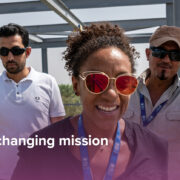

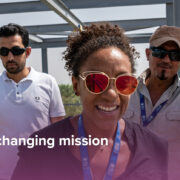
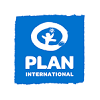
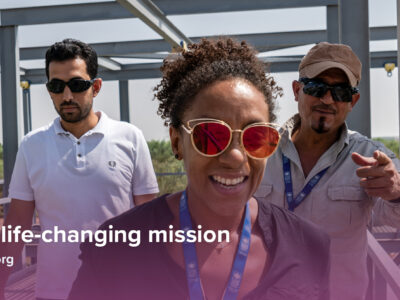

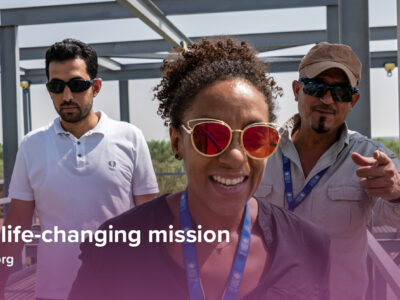


Comments